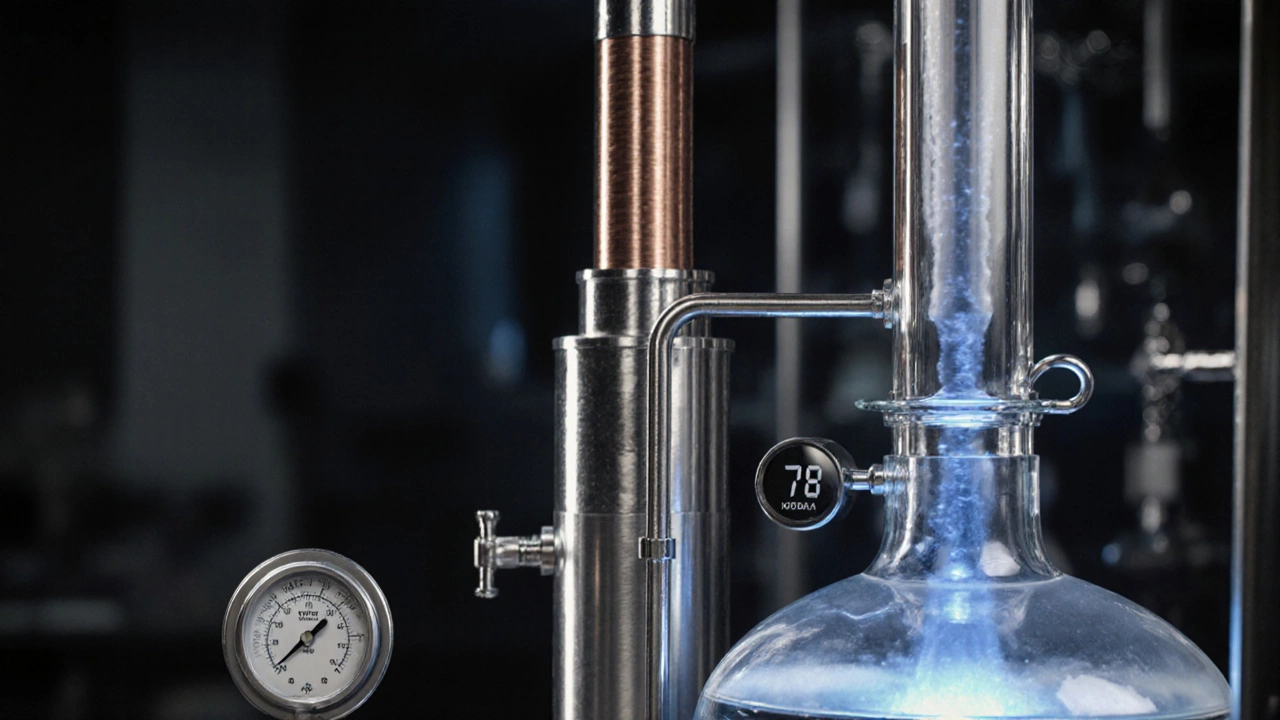Activated Carbon Vodka: What It Is and Why It Matters
When you hear activated carbon vodka, a type of vodka filtered through activated carbon to remove impurities and create a smoother, cleaner taste. Also known as charcoal-filtered vodka, it’s the go-to choice for drinkers who want zero off-notes and a neutral base that lets mixers shine. This isn’t just marketing—it’s a real process that changes how the spirit feels on your tongue. Unlike some vodkas that carry subtle grain or potato flavors, activated carbon vodka strips away congeners and sulfur compounds that can cause harshness or aftertaste. The result? A drink that’s almost transparent in flavor, which is exactly why it’s preferred for martinis, vodka sodas, and any cocktail where you don’t want the spirit to compete.
How does it work? Activated carbon is basically supercharged charcoal with millions of tiny pores. When vodka passes through it, those pores trap unwanted molecules—like fusel oils and aldehydes—while letting ethanol and water flow through untouched. It’s not magic, but it’s science you can taste. Brands like Absolut, a well-known vodka brand that uses continuous filtration through activated carbon and Tito’s, a popular American vodka that filters its product multiple times through activated carbon swear by this method. And if you’ve ever sipped a premium vodka neat and thought, "This doesn’t burn," that’s likely thanks to activated carbon. It’s also why this type of vodka often ranks high in "cleanest spirit" lists—because it’s literally cleaner, not just marketed that way.
But here’s the catch: activated carbon doesn’t make bad vodka good. If the base spirit is low quality to begin with, filtering won’t fix it—it’ll just make a dull spirit taste slightly less offensive. That’s why the best activated carbon vodkas start with high-quality ingredients. Corn, wheat, or even grapes are distilled carefully first, then filtered. The carbon does the final polish. This is why you’ll find this process in vodkas meant for sipping straight, not just mixing. It’s also why some people swear by it for reducing hangovers—less impurities means less work for your liver.
If you’ve ever wondered why some vodkas feel smoother than others, or why certain brands claim to be "purified" or "triple-filtered," now you know. Activated carbon is the quiet hero behind the scenes. It’s not flashy, but it’s essential for anyone who values purity in their drink. Whether you’re sipping it neat, mixing it into a mocktail, or just looking for the least aggressive alcohol option, this is the kind of vodka that delivers without drama. Below, you’ll find real reviews, comparisons, and tasting notes from people who’ve tried the best ones—and figured out which ones actually live up to the hype.
Learn practical ways to neutralize vodka taste using distillation, carbon filtration, home hacks, and emerging tech. Step-by-step guide, comparisons, and FAQs for smoother spirits.
View Details

